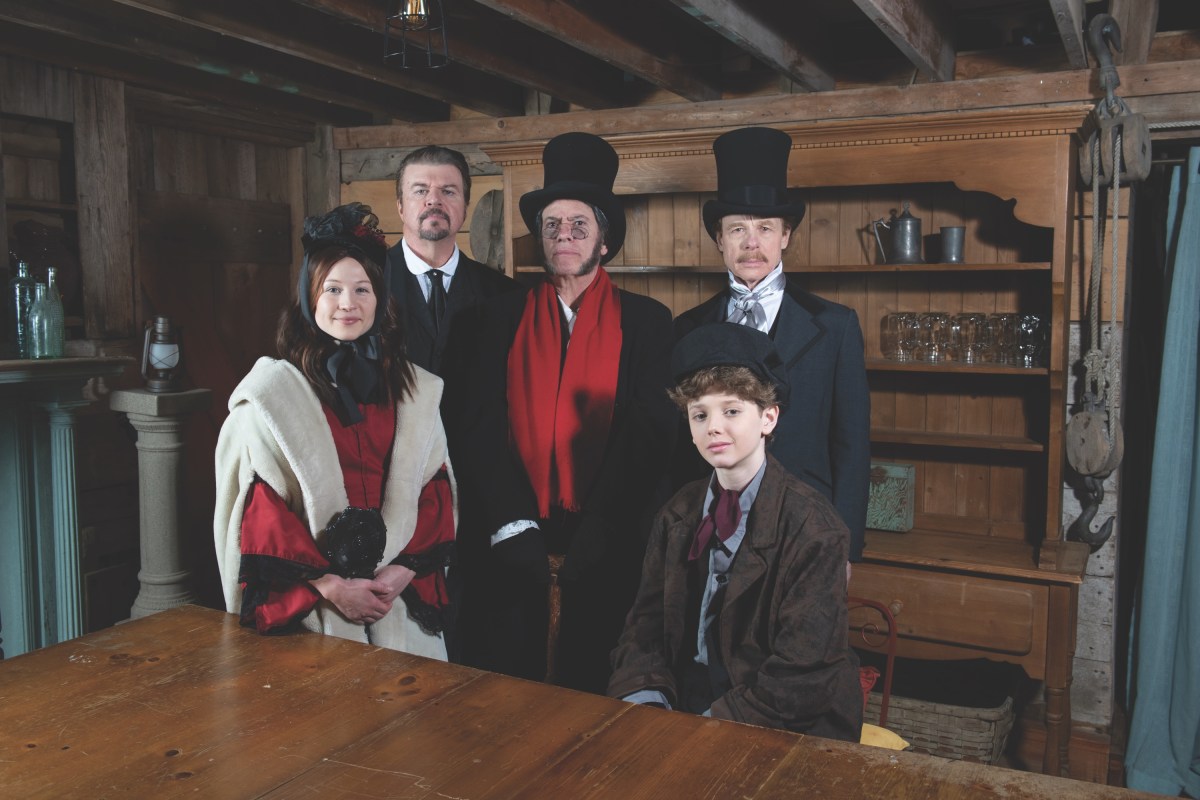The sun smiled down on the parking lot of Manetto Hill Jewish Center on Sunday morning, May 1. On one of the first warm days of spring, the warmth of an entire congregation could be felt. A prideful group of onlookers sat on folding chairs, watching as Rabbi David Ross Senter, ranking members of the temple, and local town officials dedicated a 150-year-old Torah to be used during religious services.
Adding even more significance to the day’s events, Sunday, May 1 was also Yom Hashoah- Holocaust Remembrance Day.
The event marked the culmination of a nine-month journey for the congregation, and an even longer one for the Torah. Prior to World War II, the scrolls were used in the town of Kolin, Czechoslovakia. When the Jewish community of Kolin was sent to the Theresienstadt concentration camp in 1942, the Torah was sent to Prague, to be exhibited in the “Central Museum of the Extinct Jewish Race.”
Following the war, the Torah was donated to the Westminster Synagogue in London. In 1974, the scroll was permanently loaned from the Czech Memorial Scroll Trust in London to the Manetto Hill Jewish Center, where it sat in a display case outside the temple’s sanctuary. As the Torah now sits in the ark, that display case will house a new scroll with the names of all 480 Kolin Jews who perished. The names will also survive on the wimple that surrounds the Torah until it is unrolled.
“We undertook the commitment that we are going to preserve the memory of the 480 Jews of Kolin,” steering committee member Sharon Dashow said.
The event represented so much for so many, it was almost hard to believe that the path towards Sunday’s event began with a question.
Senter took over at Manetto Hill Jewish Center in August of 2010. During his initial interview in April, he asked members of the temple why the Holocaust Torah was not being used. When he was told that the temple was instructed not to use the Torah, but only to display it as a memorial, Senter challenged the accuracy of that decree.
When it was determined that the Torah could be used in religious ceremonies, a sofer, or Jewish scribe, agreed to repair the scroll, which had been partially damaged through years of transportation and non-use.
It was at the meeting with the sofer in late August that a dream that wasn’t thought possible weeks earlier began to take shape.
“I can’t even begin to tell you the emotions that took place that night when we found out that this Torah could be restored and reused in a religious service,” committee member Harvey Cohen said.
As the sofer took the scrolls down to his home in Florida for restoration, Manetto Hill Jewish Center prepared for its return with a series of special programs and guest speakers, making sure the rededication would be less of a ceremony and more of a congregational experience.
“It wasn’t about just fixing a Torah,” Cohen said. “It was about teaching our children about the Holocaust, about tolerance, about accepting what people can do for society.”
As Sunday dawned and the Torah was processed from Senter’s home into the parking lot and onto the show mobile for the ceremony, that education- and what it meant to everyone gathered- was evident. This was far more than the introduction of a new Torah into the ark.
“This journey is not only a journey towards life, but is a reaffirmation of life,” Dashow said in her opening remarks. “We’ve called this ‘the three R’s’- rededication, rejoicing, and renewal. The rededication of our Holocaust Torah, the rejoicing in our heritage, and the renewal of our commitment.”
As Dashow introduced fellow members of the steering committee, she spoke of how universal the project was. “This has truly been a congregational effort,” she said.
Local politicians took part in the outdoor ceremony, offering congratulations, admiration, and citations.
“It is very important for us [public officials] to take a moment to recognize Rabbi Senter, your steering committee, and the admirable achievement of this Manetto Hill Jewish community in making sure that those who live in Kolin and are no longer with us are, in fact, remembered,” Assemblyman Charles Lavine said. “That makes us a finer community, a finer county, a finer state of New York, and a finer nation of Americans.”
Town of Oyster Bay Supervisor John Venditto echoed Lavine:
“The harder you look and study the past, the easier it becomes to conduct yourself in the present, and the easier it becomes to prepare for the future,” said Venditto.
Honoring the past was a consistent theme on this day. Holocaust remembrance takes on new meaning with each passing year; as time moves on, so do the survivors.
“It’s going to become even easier for our kids to be disconnected from this horrible tragedy,” Councilwoman Rebecca Alesia said.
Kolin-born Holocaust survivor Ishka Lichter, who spoke at the temple on Friday night before the ceremony, spoke in hushed tones about lessons learned from the Czech government who, although democratic in nature, allowed Hitler to invade as a form of appeasement.
“I believe that the most important [way] not to have another Holocaust is to keep our democracy,” Licter said.
The outdoor portion of the program concluded with the dedication of a memorial maple tree, planted just outside the entrance. The tree is surrounded by imported soil from Kolin and Theresienstadt.
Inside the temple, all 480 Kolin names were read and memorialized, a fitting end to an eventful morning, but not the end of the project.
“It’s an amazing experience,” Senter said. “Listening to the names of the people to whom this Torah has belonged, I just can’t help thinking about its original dedication and when it was carried through the streets of Kolin to the synagogue where it had served. I think of the bar and bat mitzvahs that should have taken place but didn’t because the Holocaust interrupted their lives.”
“I feel like we’re perpetuating not only the memory of the Jewish community that existed in Kolin,” the rabbi continued. “Each time that we come together, we’re celebrating the celebrations that they should have had.”
The congregation will continue to honor the memory of the Kolin Jews by reading from the Torah during worship. This Saturday, May 7, will mark the first time it is removed from the ark.




























